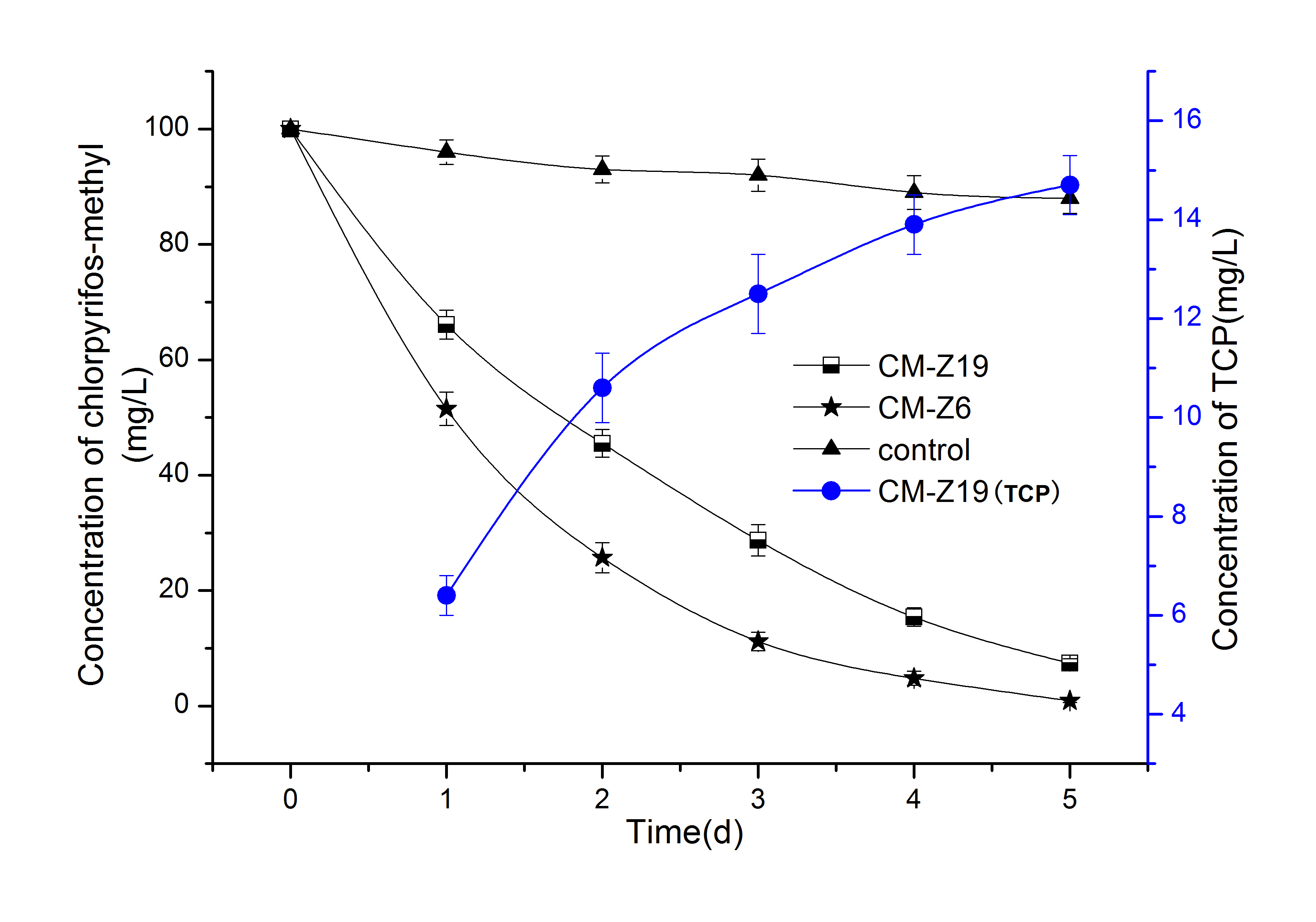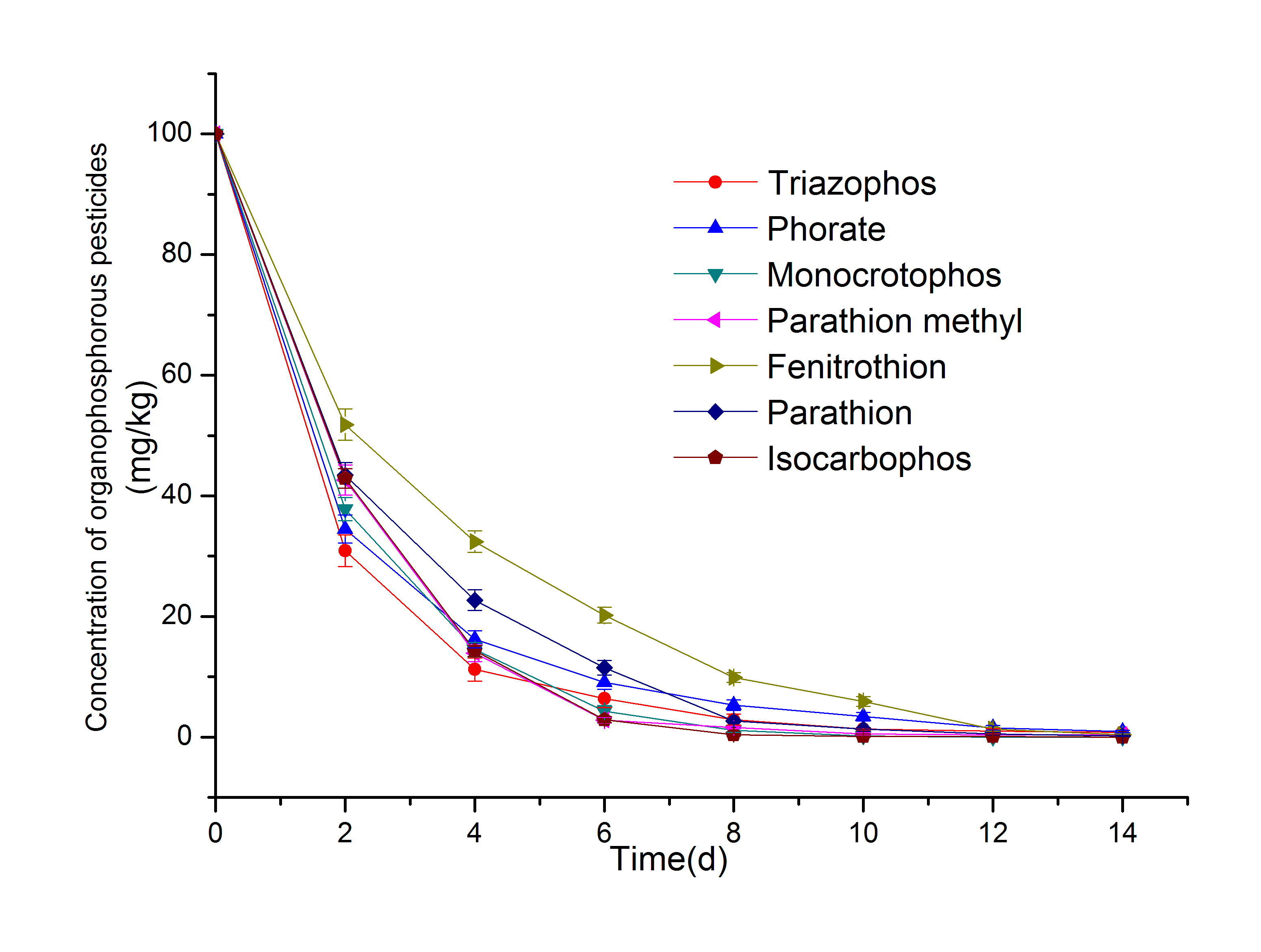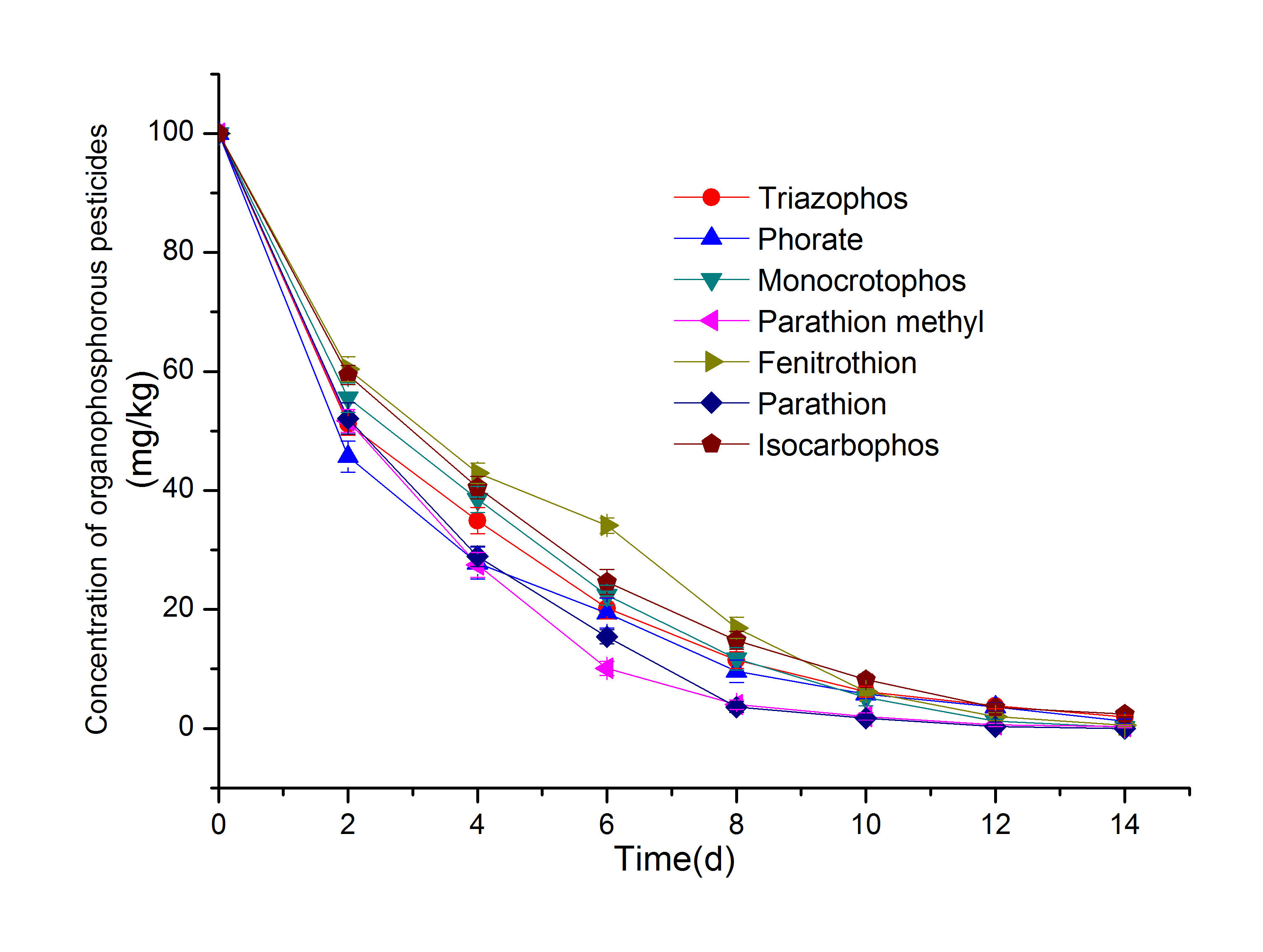Abstract: The strains CM-Z19 and CM-Z6, which are capable of highly degrading chlorpyrifos-methyl, were isolated from soil. They were identified as Bacillus megaterium CM-Z19 and Pseudomonas syringae CM-Z6, respectively, based on the 16S rRNA and an analysis of their morphological, physiological and biochemical characteristics. The strain CM-Z19 showed 92.6% degradation of chlorpyrifos-methyl (100 mg/L) within 5 days of incubation, and the strain CM-Z6 was 99.1% under the same conditions. In addition, the degradation characteristics of the two strains were compared and studied, and the results showed that the strain CM-Z19 had higher phosphoesterase activity and ability to degrade the organophosphorus pesticide than did the strain CM-Z6. However, the strain CM-Z19 could not degrade its first hydrolysis metabolite 3,5,6-trichloro-2-pyridinol (TCP) and could not completely degrade chlorpyrifos-methyl. The strain CM-Z6 could effectively degrade TCP and could degrade chlorpyrifos-methyl more quickly than strain CM-Z19.
Key words
Bacillus megaterium; Pseudomonas syringae; chlorpyrifos-methyl; 3; 5; 6-trichloro-2-pyridinol; biodegradation

 Thumbnail
Thumbnail
 Thumbnail
Thumbnail
 Thumbnail
Thumbnail
 Thumbnail
Thumbnail
 Thumbnail
Thumbnail
 Thumbnail
Thumbnail
 Thumbnail
Thumbnail






